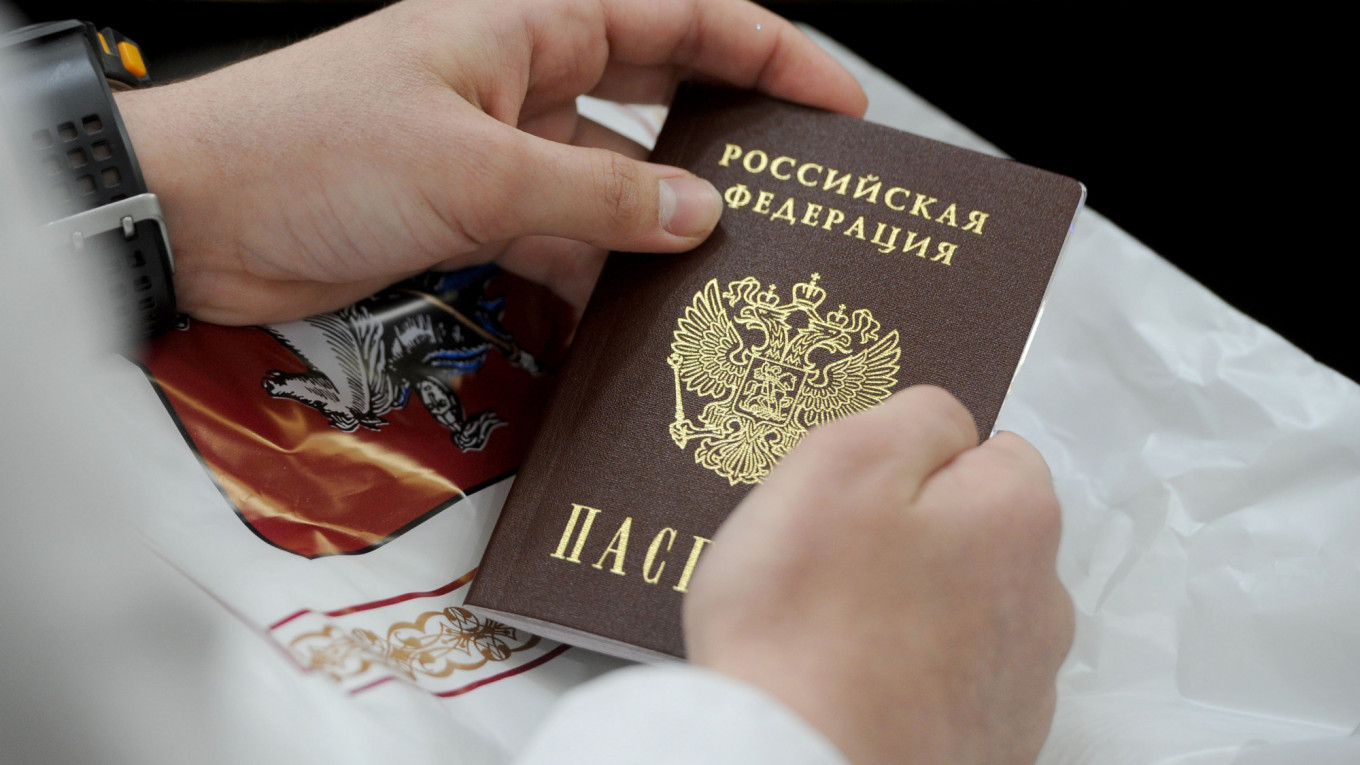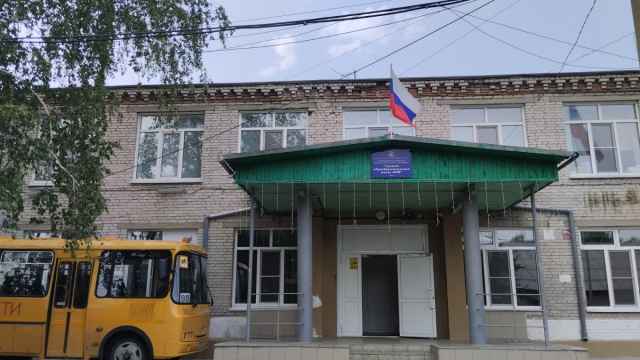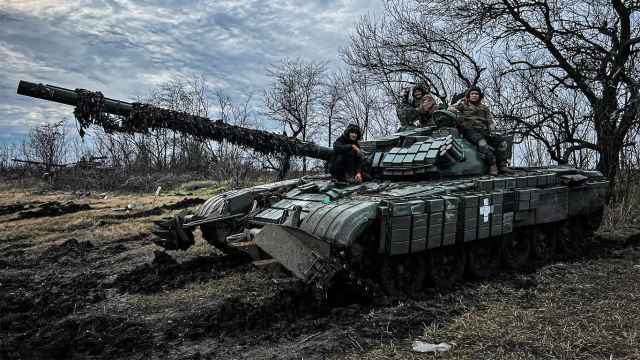Olesya Krivtsova, an activist and journalist from Arkhangelsk, recently revealed her internal passport, a mandatory identity document for Russian citizens, was canceled without word from the authorities. This is the third instance of it happening, after two men from Omsk reported the same thing.
What links these three cases is the fact that Krivtsova, Richard King and Daniil Chebykin are all activists. This is a sign that the authorities are finding new ways to target dissenters which will have serious consequences for their lives.
Many services in Russia are tied to a person’s internal passport, from accessing state services to banking and buying a SIM card. A person’s international Russian passport that allows them to travel abroad is tied to their internal one, as is their foreign passport if they are a dual-national.
As long as a person is abroad, the cancellation of their internal passport does not place them in danger. But in Russia itself, the consequences would be severe.
If an internal passport is revoked, it removes a person from society. You cannot do anything: neither sell nor buy an apartment, write out a power of attorney, open or use a bank account, or get a Russian telephone contract.
In the Soviet Union, people were punished with expulsion from the country and the deprivation of their citizenship. They were met with open arms in the West because they were few in number and living proof of the cruelty of the regime.
Most people who have left Russia since 2022 did so in much larger numbers of their own free will. Technically, canceling their internal passport does not deprive them of their citizenship. But they lose the rights that come with their nationality. They can no longer go to a Russian embassy or consulate to renew their documents, as Krivtsova learned.
If a person’s foreign visa or residence permit is attached to their passport, they will probably be forced to apply for refugee status, as even humanitarian visas are tied to their Russian passport. But this is not an immediate solution. Many countries have long backlogs of applications to work through and place restrictions on asylum seekers’ ability to work or access state services. While many recent emigres are young and may be able to persevere, the instability of their statuses will one day take its toll. Saying goodbye to the country where you grew up is not easy.
In addition, the authorities will soon have the right to list extremists and terrorists for almost any crime. For example, Yulia Navalnaya was recently included, but she is far from the only one. As of today, there are over 14,000 people on the list. According to a bill submitted to the State Duma, all these people might be at risk of having their passports annulled.
Almost any crime, if committed on the grounds of political, religious, ideological, racial or national hatred or enmity, could lead to inclusion on the list. The definition of this is flexible. If a victim of any crime belongs to a group favored by the authorities, such as a member of United Russia, they could be considered a victim of a hate crime.
It is because extracting money from the Russian people is second only to oil revenues in growing the Kremlin’s coffers. Furthermore, targeting high-profile people such as the author Boris Akunin, former world chess champion Garry Kasparov and journalist Andrei Zayakin is a way of frightening people into silence.
But the consequences are the same for people on every level of society. A trolleybus driver from Chita told me that he could not get a job because he was on the Rosfinmonitoring list. No one would hire him. Cut off from Russia’s banking system and unable to open an account, there was nowhere to pay his salary.
The list was created in 2001 and attracted little attention until 2013 when new legislation led to an increasing number of people being declared extremists and terrorists. Then things reached a fever pitch. Almost 1,000 people have been included since the start of the year. In 2024 alone, 79 teenagers under the age of 18 have been added to the register.
I think being included on this register is comparable to having your internal passport canceled. You do not need a conviction for either of them. Both of them render people unable to take part in Russian society fully.
What does one have to do to get off the Rosfinmonitoring “terrorists and extremists” list? First of all, you have to serve your time. But unless you are willing to wait a decade for your criminal record to be expunged, you will have to go to court. But arguing your case will not be straightforward.
Perhaps you will get lucky and have good lawyers. If you are not as high-profile as Garry Kasparov or Boris Akunin, then maybe they will let you move on. But there are very few such cases.
What can you do? Nothing. You can conduct financial transactions for 10,000 rubles ($114.55) a month, with an additional 10,000 for dependents. This was the case for the director Yevgenia Berkovich and playwright Svetlana Petriychuk, who were added to the list months before they were sentenced to six years in prison. These capital restrictions will still apply to them at the prison shop, where prices are inflated. When they are finally released, their lives will not return to normal.
The Russian state has shown time and again that it is capable of thinking up new ways of persecuting people who dare to stand up for it. By rendering its targets powerless within Russian society, it makes it even harder to fight back.
A Message from The Moscow Times:
Dear readers,
We are facing unprecedented challenges. Russia's Prosecutor General's Office has designated The Moscow Times as an "undesirable" organization, criminalizing our work and putting our staff at risk of prosecution. This follows our earlier unjust labeling as a "foreign agent."
These actions are direct attempts to silence independent journalism in Russia. The authorities claim our work "discredits the decisions of the Russian leadership." We see things differently: we strive to provide accurate, unbiased reporting on Russia.
We, the journalists of The Moscow Times, refuse to be silenced. But to continue our work, we need your help.
Your support, no matter how small, makes a world of difference. If you can, please support us monthly starting from just $2. It's quick to set up, and every contribution makes a significant impact.
By supporting The Moscow Times, you're defending open, independent journalism in the face of repression. Thank you for standing with us.
Remind me later.







